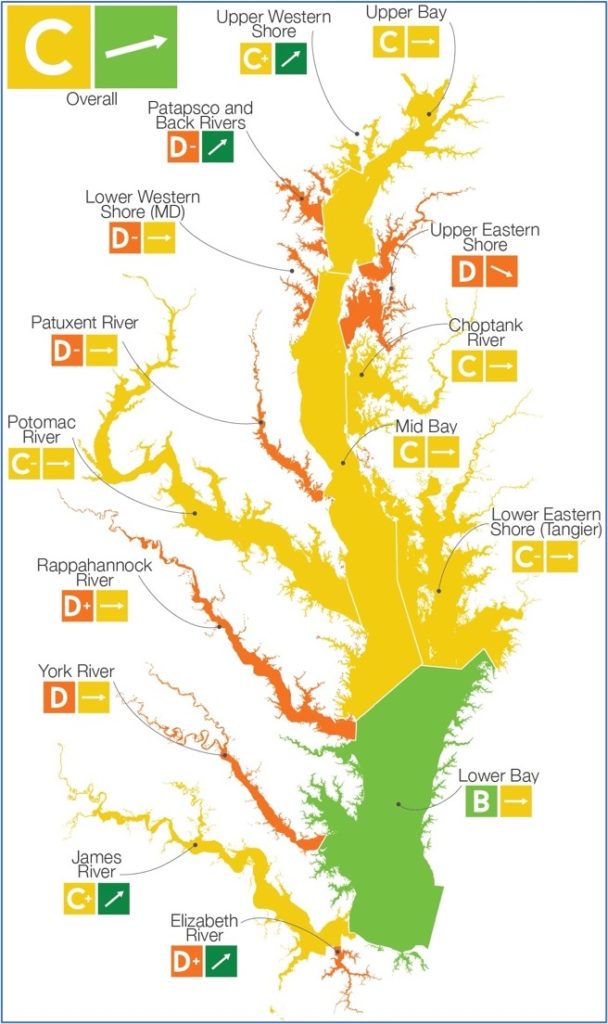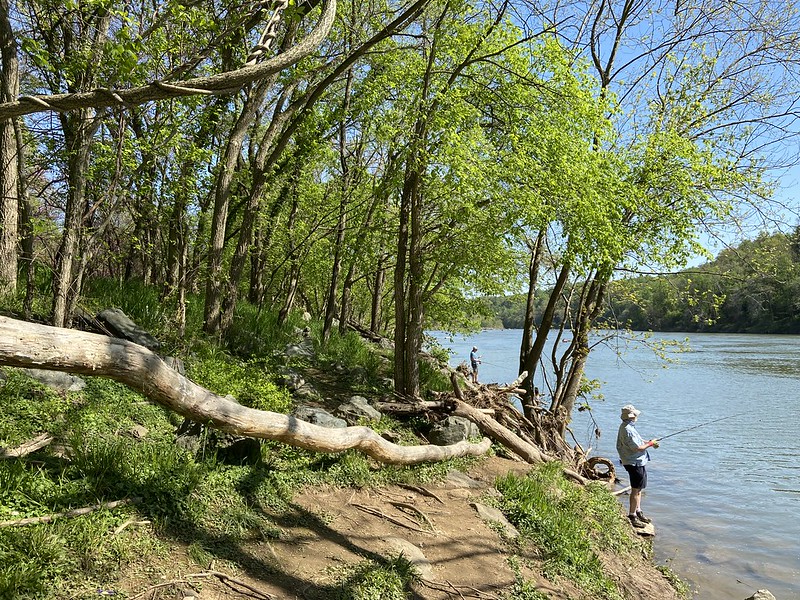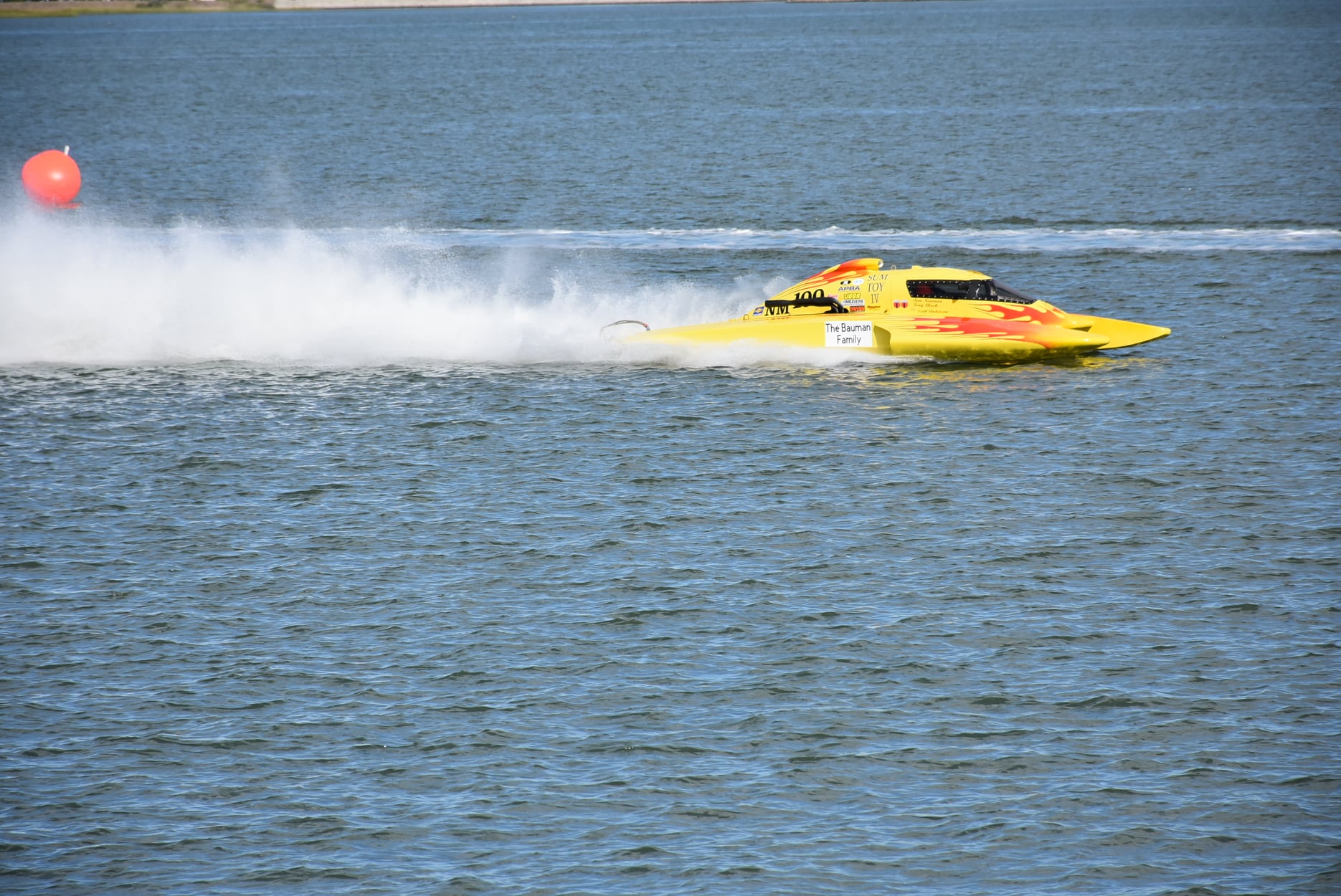June 4-12 is proclaimed Chesapeake Bay Awareness Week, and Maryland’s environmental scientists have released the Bay’s latest health score: a C-plus, up slightly from the previous year’s C grade.
The University of Maryland Center for Environmental Science (UMCES) finds in its 2021 Chesapeake Bay and Watershed Report Card that the overall health score improved from 45 to 50.

In general, nitrogen and phosphorous loads in the water are improving, along with aquatic grass cover, but water clarity and chlorophyll are still getting worse. The lower Bay scored highest again this year, with a score of 65. The Patapsco & Back rivers (measured together) and the Patuxent River scored lowest with 23 each.
In the long term, the James River, Elizabeth River, Patapsco and Back Rivers, and upper
Western Shore regions have all improved significantly.
“I wish we could be here celebrating an A-plus grade,” said Congressman Dutch Ruppersberger (D-MD 2nd District). “But a little progress each days adds up to big results, and we are making progress.”
While most areas of the Bay are trending in the right direction, the upper Eastern Shore is unfortunately seeing a slight declining trend—the first worsening trend seen since 2014.
In 2021 UMCES added social indicators to its report card, and have now also added economic indicators to evaluate the health of local economies in each area of the Bay. These included median household income, job growth, income equality, and housing affordability.
The new economic categories will allow UMCES to evaluate the relationship between socioeconomic factors and environmental conditions, informing policy on the emerging issues of inclusivity, diversity, and environmental justice.
“One of the most important messages today is that including economic indicators into our Bay report card metrics is that we must stop pitting the economy versus the environment. Rather, we need to recognize that a healthy economy and a healthy society make for a healthy environment.” says Dr. William C. Dennison, vice president of science applications at UMCES.
UMCES issued its first Chesapeake Bay and Watershed Report Card in 2006. It is the most comprehensive assessment of the Bay and its waterways, partnering with the National Fish and Wildlife Foundation and Chesapeake Bay Program along with the region’s academic institutions and localities to gather extensive data.
-Meg Walburn Viviano




